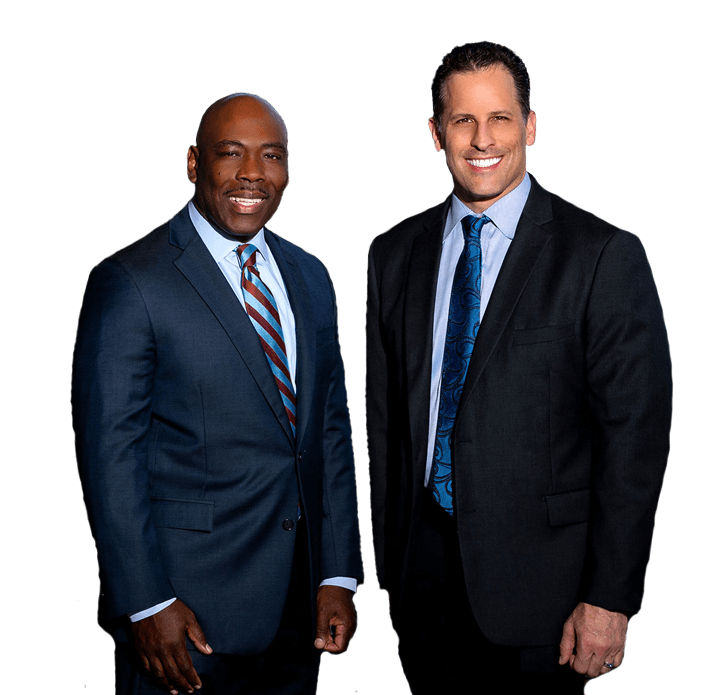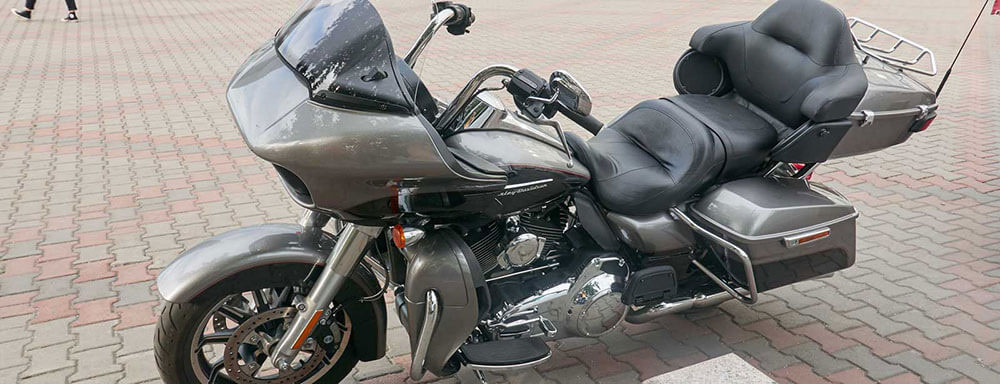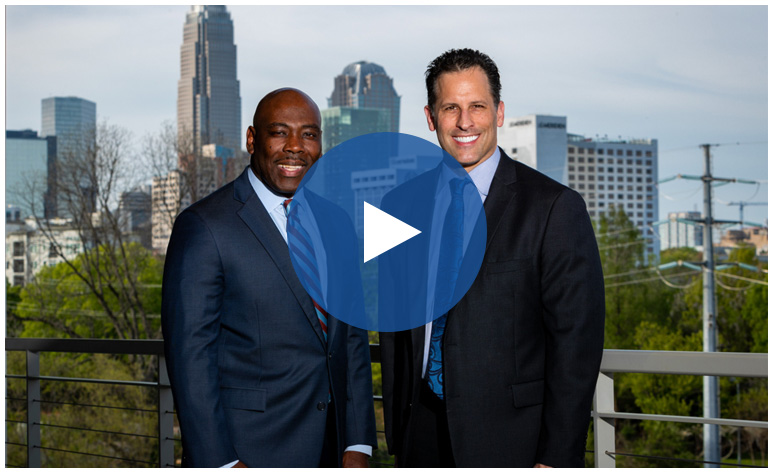North Carolina Motorcycle Accidents FAQs
Frequently Asked Questions About North Carolina Motorcycle Law


Do I have to wear a helmet in North Carolina while operating, or riding on a motorcycle?
Yes, if you are operating, or riding a motorcycle as a passenger in North Carolina, you must wear a helmet that complies with Federal motor vehicle safety standards.
What equipment must my motorcycle have on it to make it legal in North Carolina?
To be considered legal in North Carolina a motorcycle must have a rearview mirror, a horn that can be heard at least 200 feet away, an exhaust system, a speedometer, and a foot peg or rest for passengers. More specifically, the motorcycle must have a license plate visible from 50 feet away after dusk, a rear brake light visible from 100 feet away, a red rear light visible from 500 feet away, and that is on at all times while the motorcycle is operating, and a headlight that lets the operator see at least 200 feet in front of the motorcycle, and that is on at all times while the motorcycle is operating.
Is any other riding equipment required by North Carolina law?
Though it is not required by law, most motorcycle safety advocates recommend that you wear goggles, or a face shield of some sort, boots, protective gloves, a jacket made of leather, or other protective material, and thick pants such as jeans.
Is lane splitting, or lane sharing allowed in North Carolina?
Motorcycles are treated like any other motor vehicle in that they are entitled to the full use of a lane. Motorcycles cannot lane-split, or lane share with other motor vehicles, but they are entitled under North Carolina law to share a lane with one other motorcycle at a maximum, and ride side by side. More than two motorcycles cannot lane split, or lane share in North Carolina.
What type of license do I need to have to operate a motorcycle in North Carolina?
You must have a full provisional, or regular, driver’s license, and a motorcycle learners’ permit, or motorcycle endorsement to operate a motorcycle legally on the roads of North Carolina.
How loud can my motorcycle be in North Carolina?
The state of North Carolina requires that a motorcycle be equipped with a muffler. It is against the law in North Carolina to operate a motorcycle with a muffler cut-out, or bypass. A cut-out is a mechanical, or electric, device that allows the exhaust to go through a separate exhaust pipe thus bypassing the muffler.
What should I do if I have been in a motorcycle accident in North Carolina?
The first and most important thing to do is to stay safe at the accident scene. Leave your motorcycle where the accident happened unless it is unsafe to do so, or if you have been instructed to move it by a police officer. If you must, or can, move your motorcycle, pull to the side of the road and stay in a safe place after the accident. It is surprisingly common to see additional injuries after the motorcycle accident due to oncoming traffic.
Contact the police as soon as possible after any motorcycle accident. The police will take statements, and make a report to document record the accident scene for your insurance company, or the court, if needed. Police will sometimes refuse to come out because the accident was on a private lot, or there were no life-threatening injuries. If this is the case make sure to get the insurance information, address and phone number of the other driver, and contact information from witnesses.
See a doctor immediately for your injuries. Do not delay being seen at the emergency room, a chiropractor, or your family doctor. The longer you delay seeking medical treatment the more the insurance companies penalize you, with their rationale being if you were truly hurt, you would not have delayed seeing a doctor, or going to the hospital, or chiropractor.
It is crucial that you speak to a North Carolina motorcycle crash attorney at Tippens & Zurosky, who will advise you of your rights after a motorcycle accident. We will focus on the details of the accident so that you can focus on your recovery, and the recovery of any injured family members.
When you contact a motorcycle accident attorney at Tippens & Zurosky, they will advocate for you in all dealings with your insurance company. Do not give a statement to the liability insurance company for the person that struck you, or your own insurance company without an attorney on your side. Insurance companies want to pay you the smallest amount possible for your injuries because they do two basic things: collect premiums, and pay claims. The less they pay in claims the greater the profit is in their pockets. Tippens & Zurosky will protect your rights after an accident and fight for your personal injury insurance claim against insurance companies that have their own best interests at heart.
After any motorcycle accident, you should always take steps to preserve evidence that can help your claim against the insurance company and the other driver. Here are a few things you need to document:
Take photos of all of the involved motor vehicles, using your cell phone. You can also video the accident scene if it is safe to do so, and you are physically able to do so.
Take photos of any visible injuries, including road rash, bruising, fractures, or back injuries. Pictures taken at the hospital right after the accident of a serious injured family member can be very persuasive later on when it is time to resolve things with the negligent party.
Keep a daily journal of pain or injuries, such as a record rating your pain, explaining how the pain or injuries affected your daily life, social engagements, work schedule, and relationship with family members.
Again, if you are involved in a motorcycle accident, it is helpful to speak with an attorney before you speak with any insurance company. You can’t even sometimes trust what your own insurance company tells you, particularly if they are the ones that have to pay out on your behalf. Tippens & Zurosky has represented people involved in auto accidents and hurt on the job, in North Carolina and South Carolina for over twenty years. Let us help you deal with the unexpected, and get your life back on track. Call us toll free at (877) 372-3580, or 704-343-0018 to schedule a consultation so that we may assist you.








